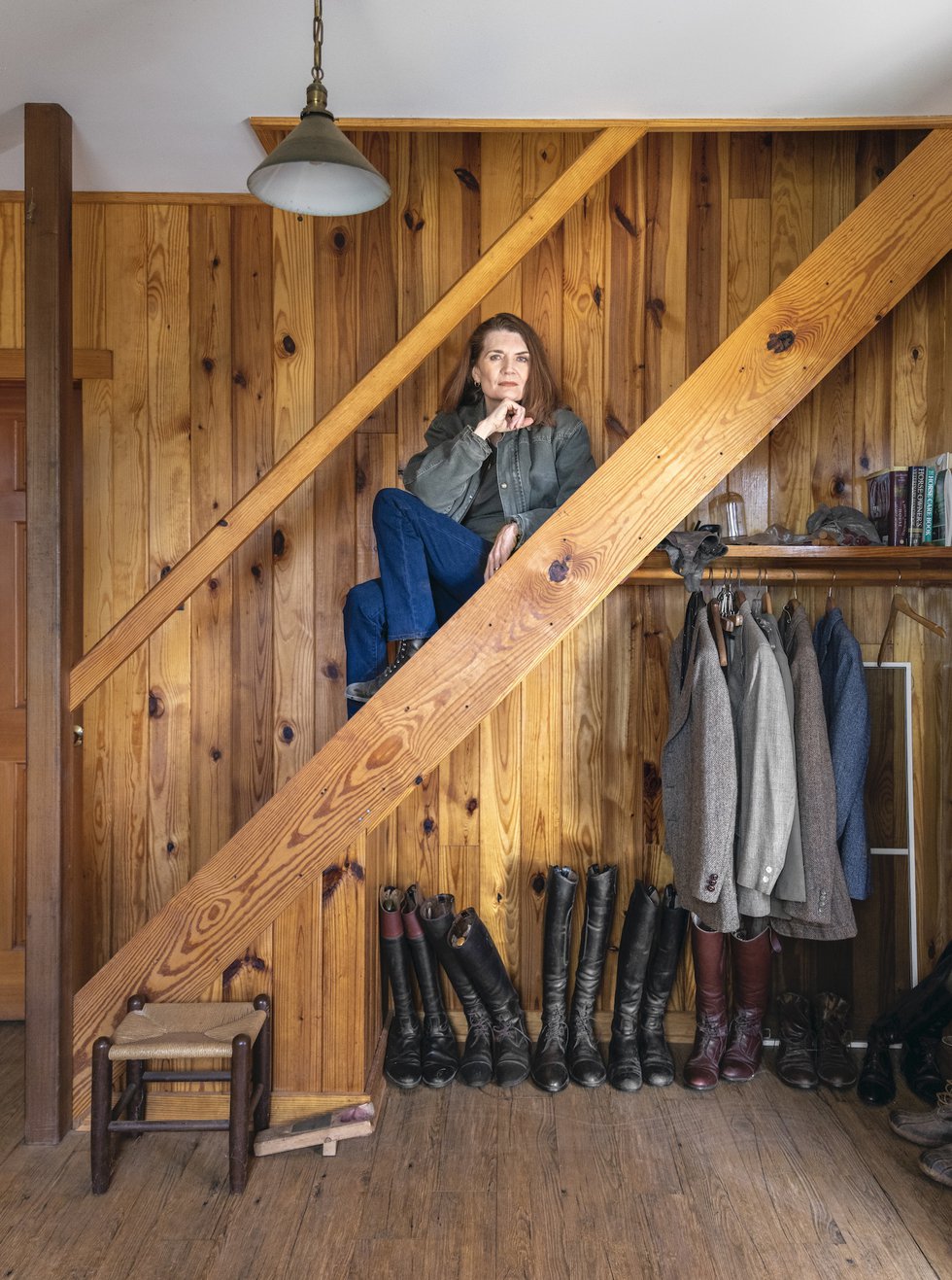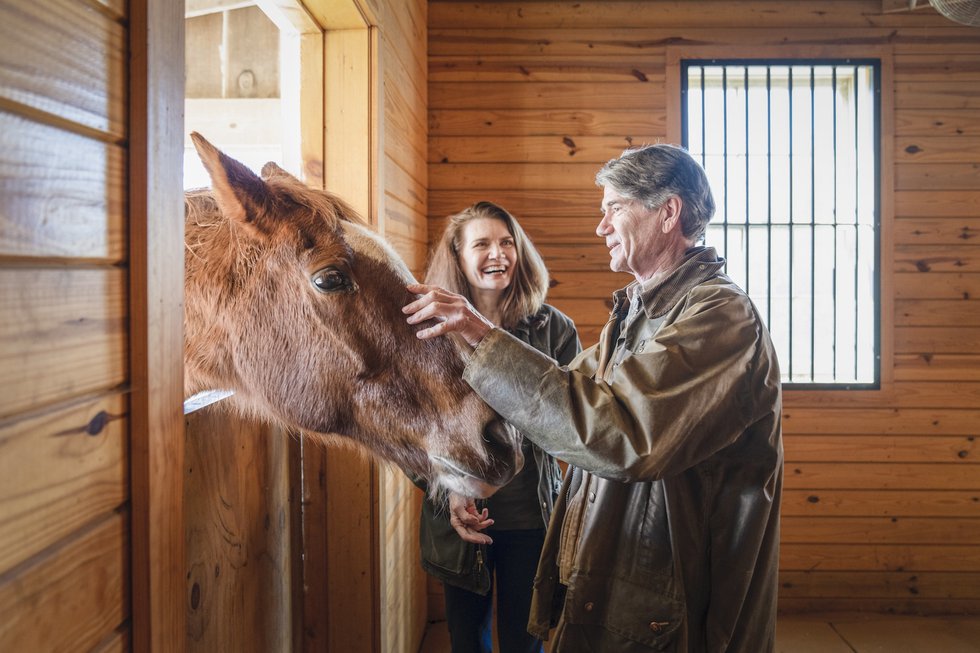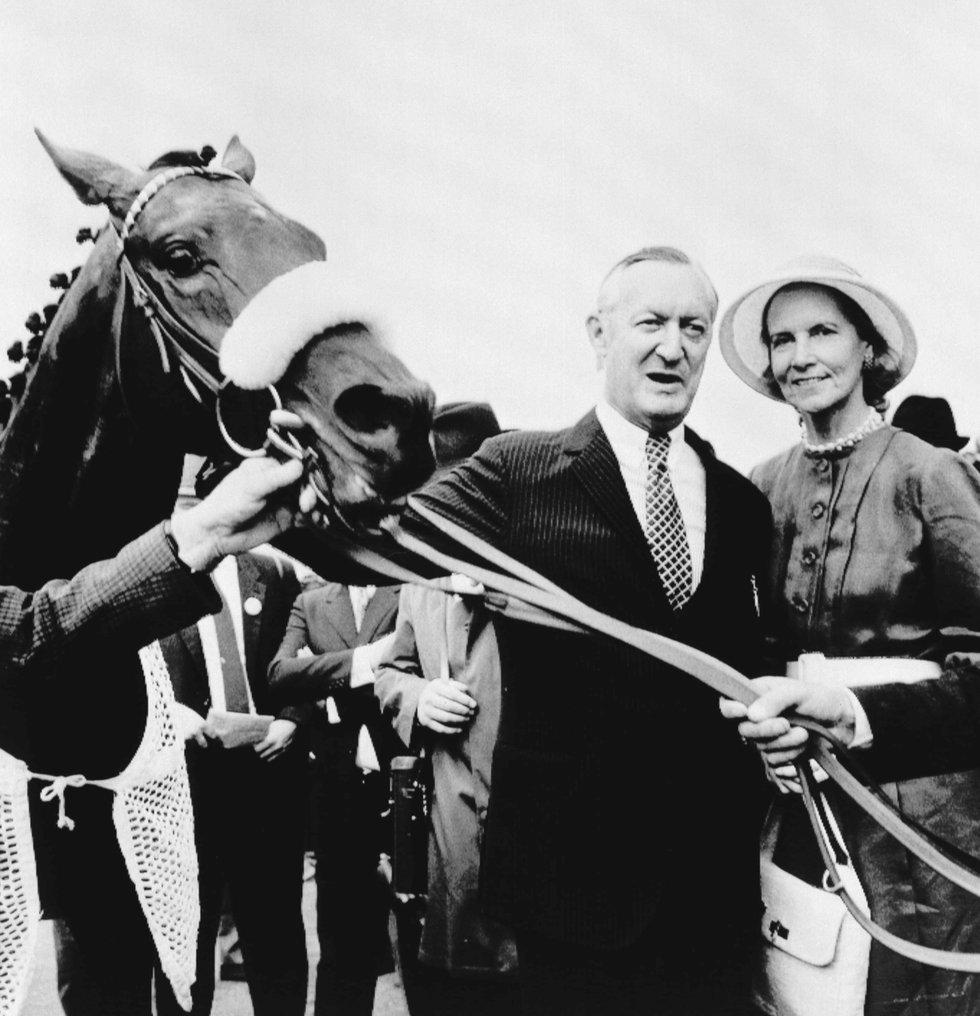In her new novel, the Glass Castle author explores home and history: “With Virginia, it’s a love affair.”

In the movie version of her 2005 memoir, The Glass Castle, Woody Harrelson and Naomi Watts play her nomadic parents while Brie Larson stars as Walls herself. The theater run spurred the book to an astonishing 459 weeks on The New York Times bestseller list. Now, Walls brings us Hang the Moon, set in the 1920s during Prohibition. After a tragic exile, Sallie Kincaid, daughter of The Duke, the biggest man in a small Virginia town, returns home to confront family secrets. Walls’ own roots run to Arizona and West Virginia, but it’s Virginia that’s stolen her heart. “I think some people have an internal landscape,” she says. “There’s just something about green mountains that stirs my soul.” Ahead of her book’s debut, Walls chatted up a storm with us about family, Food Lion, fly paper, and more.
Walls will be at the Ashland Book Festival on May 6. Held at the historic Ashland Theatre, the Festival also features journalist and political analyst for CNN Maggie Haberman that Friday, May 5.
Virginia Living: You moved here from New York City. What was it about Virginia?
Jeannette Walls: We could live anywhere, but Virginia feels like home more than any place I’ve ever lived. My husband was the one who said, if you’re going to be a writer, you should get out of New York City.
I will always love New York, but it feels like an old boyfriend with whom I broke up amicably. With Virginia, it’s a love affair. People step up for you here. When my husband broke his arm, three people showed up to ask, “what needs mowing?”
We moved to a 33-acre farm in Culpeper. I’m not a city slicker, but I was a little nervous about handling that much land. Then we moved to Orange and started with 100 acres. Now we’re up to 320. We keep honeybees and have 11 chickens, three horses, two dogs, and nine cats who just showed up. Every day I feel like pinching myself.

Your novel is set in the fictional Virginia town of Caywood. Where is it?
In the Blue Ridge foothills. I borrowed heavily from Franklin County. There was a famous female moonshine runner there. Willy Carter Sharpe could take a mountain road at open throttle. She also got herself arrested a few times.
Speaking of mountain roads, automobiles figure prominently in Hang the Moon.
I looked at the newspapers to figure out what people were talking about between 1915 and the early 1920s. The Richmond papers, especially, covered automobiles and roads the way newspapers might cover the Internet today. The automobile led to a transformation in America. Women who could drive then were an anomaly.
What spoke to you about Prohibition?
As Mark Twain put it, history doesn’t repeat itself, but it rhymes. We keep fighting these battles, trying to legislate how we live. But it rarely goes the way we think—the law of unintended consequences emerges.
I read hundreds of books on the period. I think the cure for nostalgia is research. Virginia actually went dry four years before Prohibition started, prompted by basically good people who felt that the world was becoming a scary place.
Prohibition was a nativist movement to remove the threat of “the other”—the Italians with their wine or the Germans with their beer. The Prohibitionists thought, ‘if we outlaw liquor, then people won’t be spending time in saloons. Crime will stop. Jails will be empty. Then we’ll take the money we’re spending on jails and put it toward education.’ Then the Ku Klux Klan got involved in the 1920s. What could possibly go wrong?
Sallie Kinkaid sounds a lot like you.
A lot of her comes from me. I definitely have a hot head. It’s the West Virginia mountain girl in me. We’re scrappers, for better or for worse.
The biggest challenge was getting into the head of this young woman who lived 100 years ago.
I wanted Sallie to be open-minded and kind, but she couldn’t be woke. I’ll probably get in trouble with her love of guns. But for women up in the mountains, knowing how to shoot a gun was essential for their survival.

For Sallie, family is like shifting sand. Is this a truth we all face?
Okay, honey, you hit the nail on the head. This talk about blood being thicker than water? It can be. But, yes, it’s about figuring out where we fit into our families.
Very often families—like society—try to put us in roles we’re not suited for. At what point do you say, ‘I reject this’? Women’s roles were changing at the time so, in a larger sense, this was also happening all over the country.
Somebody once told me we become adults, not when we’re of age to vote or drink. It’s when we realize our parents are flawed human beings. Sallie has to reconcile with her father—someone she thought was near perfect—who turns out to be full of contradictions.
You write flawed characters with great compassion—especially in your memoir.
That’s where you find the beauty—in the tension of those mixed emotions. The Duke had compassion but he could also be ruthless. Nobody is all good or all bad.
One of my favorite books is The Hemingses of Monticello by Annette Gordon-Reed. Here Jefferson is this incredibly great man. He did a lot of good. But then he has this contradictory side.
Maybe that’s one thing I love about Virginia. It’s steeped in history and contradictions, so it’s a constant inspiration.
Was there any interesting research that didn’t fit into the book?
Fly paper! Hotels were advertised as “fly-proof.” Small towns had entire committees devoted to controlling flies. I couldn’t understand why houseflies were such a big issue. But then I noticed that the popularity of fly paper greatly diminished with the advent of the automobile. And the answer made perfect sense: There wasn’t as much horse manure around.
There were calls to ban The Glass Castle in schools. The book was listed among the 10 Most Challenged Books in 2012. How did you respond to that?
This is a scary world; so I get it. We all want the best for our children. We just disagree on how to do that. My plea to people who want to ban books is to share our knowledge. Through the magic of storytelling—survival stories especially—we give children the tools to navigate hardship.
I was giving a talk to a group of high school students in a suburb of Dallas, where one of the parents had objected to The Glass Castle, saying it was very upsetting and triggering. And bless their hearts, the students said, “We need to know that these kinds of families exist.” They overrode the parents’ objections.
The solution to the culture clash we’re living in now, is in finding common ground.

Wall’s Top Ten:
– Our chestnut tree: A blight in the early 1900s nearly wiped out the chestnut trees. We discovered one, more than 70 feet tall, in our woods. It’s the second biggest chestnut in Virginia, so that tree represents hope.
– Patois Cider, Albemarle: It’s like fine Champagne. Patrick Collins, the proprietor, makes it with wild apples and pears, some picked from our property.
– Food Lion, Orange: The first time someone chatted me up, I thought, What is going on here? Now, I know most of the customers and clerks by name. Sheila, the manager, has got my back.
– Adriana Trigiani: A big-hearted writer who tells big stories. If you love her books, come to one of her readings. Adriana is a force of nature.
– Brian Morse, Afton: The co-founder of Virginia Forestry and Wildlife Group helped convert our forlorn hay field into a wildlife meadow where birds, bees, and other pollinators now have frolicking block parties.
– Pixley Automotive, Culpeper: The dealer wanted $2,000 to fix our Dodge pickup. Zebulon Pixley did it in 90 seconds—and refused our offer to pay. We’re customers for life. Plus, Zeb’s a race car driver.
– Batesville Market, Batesville: This old-school country store is a great place to hear music.
– The Barbeque Exchange, Gordonsville: Craig Hartman’s incomparable pulled pork has become a tradition before each Thanksgiving and Easter.
– Grelen Nursery, Somerset: Co-owner Zeke Galvin is a kindred spirit who shares our obsession with natural beauty.
– Afton Overlook, Rt. 250: Stop here to admire the view of Rockfish Valley. It’s Shangri-La in Virginia.
Get a copy at The Bookshop.
This article originally appeared in the April 2023 issue.









